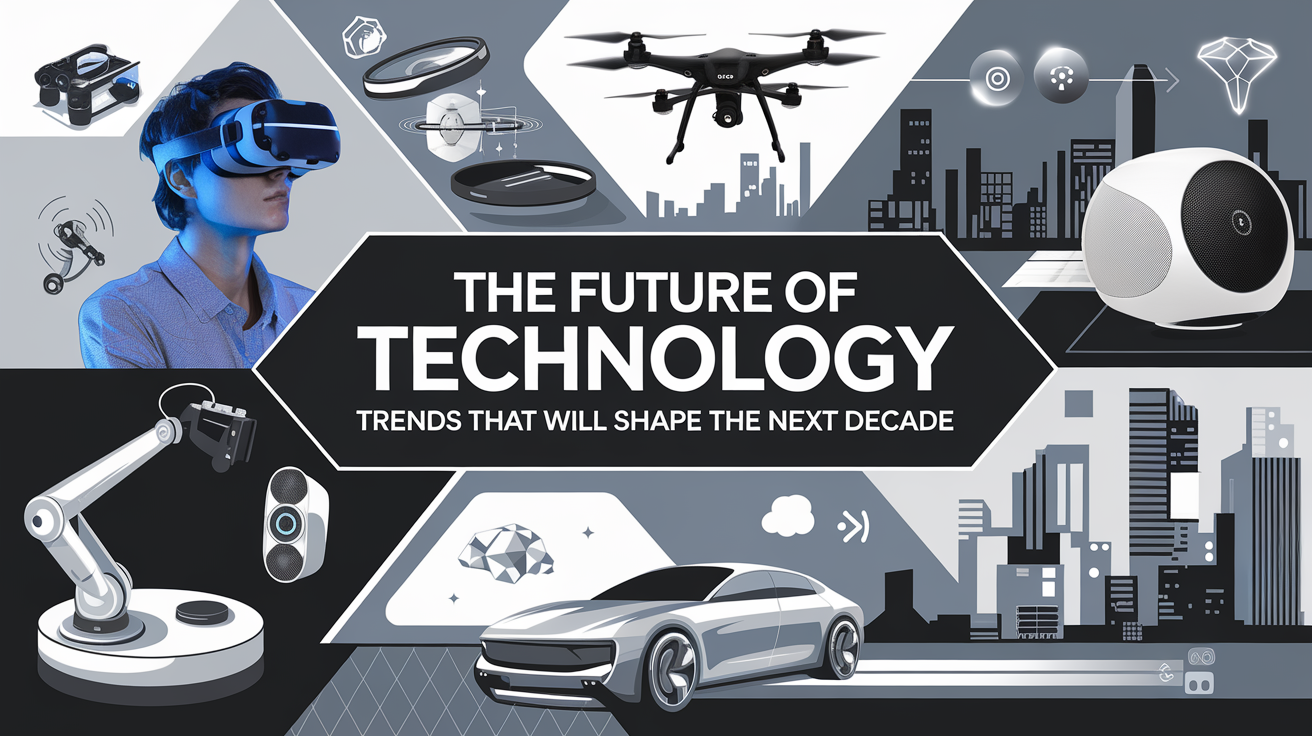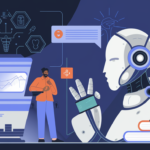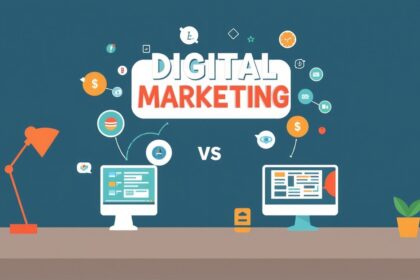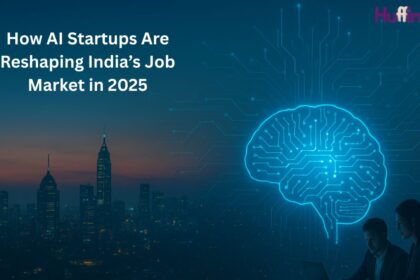As technology continues to evolve at breakneck speed, it’s reshaping the way we live, work, and interact. Over the next decade, we can expect to see radical shifts in nearly every aspect of our lives, driven by technological innovation. From artificial intelligence to quantum computing, the future holds exciting possibilities. In this article, we’ll explore the top technology trends that are set to shape the next decade, offering a glimpse into what the future might look like.
1. Artificial Intelligence and Machine Learning Revolution
Artificial Intelligence (AI) and Machine Learning (ML) have been on the rise for years, but their impact is only set to deepen. As time goes on, AI will continue to be integrated into every facet of our daily lives, ranging from personalized digital assistants to more advanced automation in industries like healthcare, manufacturing, and logistics.
- AI-Powered Healthcare: AI will play a significant role in predictive diagnostics, personalized treatments, and robotic surgery. Moreover, machine learning algorithms can analyze vast amounts of patient data, providing more accurate diagnoses and treatment plans.
- Automation Across Industries: In addition, AI-driven robots will increase efficiency, reduce human error, and create safer work environments. Logistics and supply chains will also become more automated, with AI optimizing routes and reducing delivery times.
- AI in Education: Furthermore, AI-driven tools will offer personalized learning experiences, catering to each student’s learning style and pace. Virtual tutors and AI-powered grading systems will support teachers in providing high-quality education.
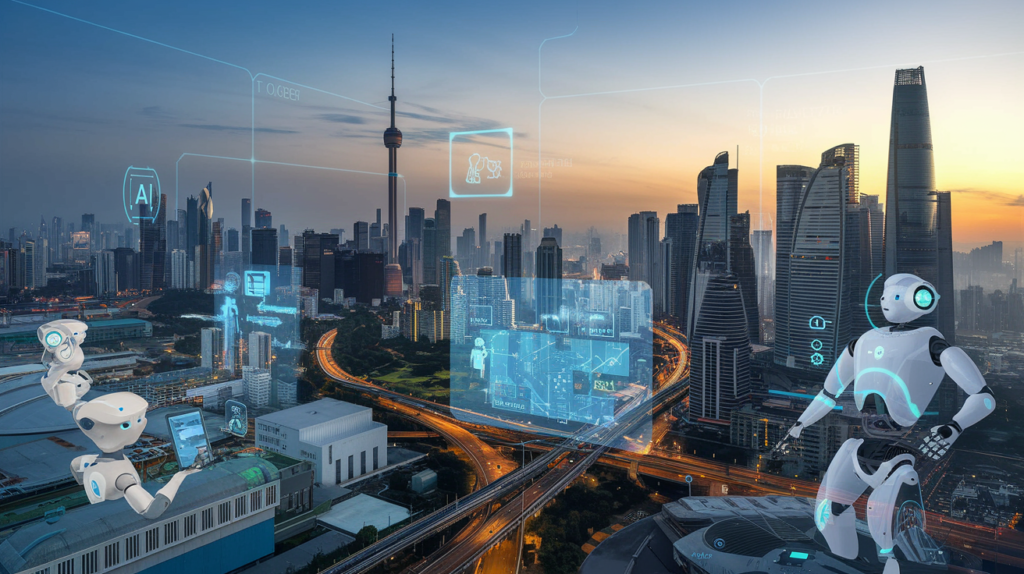
2. Quantum Computing Breakthroughs
Quantum computing is poised to revolutionize industries by solving problems that are impossible for classical computers to handle. For instance, this cutting-edge technology uses quantum bits (qubits) to process massive amounts of data simultaneously.
- Advancing Drug Discovery: Quantum computers will accelerate drug discovery by simulating molecular structures and chemical reactions at unprecedented speed. Consequently, this could lead to faster development of life-saving medicines and treatments.
- Financial Modeling: In addition, quantum computing will optimize complex financial models, allowing for better risk assessments and more accurate forecasting. Thus, it will transform the way financial institutions make decisions and manage portfolios.
- Cybersecurity Evolution: Furthermore, quantum encryption techniques will provide a new level of data security, making it nearly impossible for hackers to breach sensitive information.
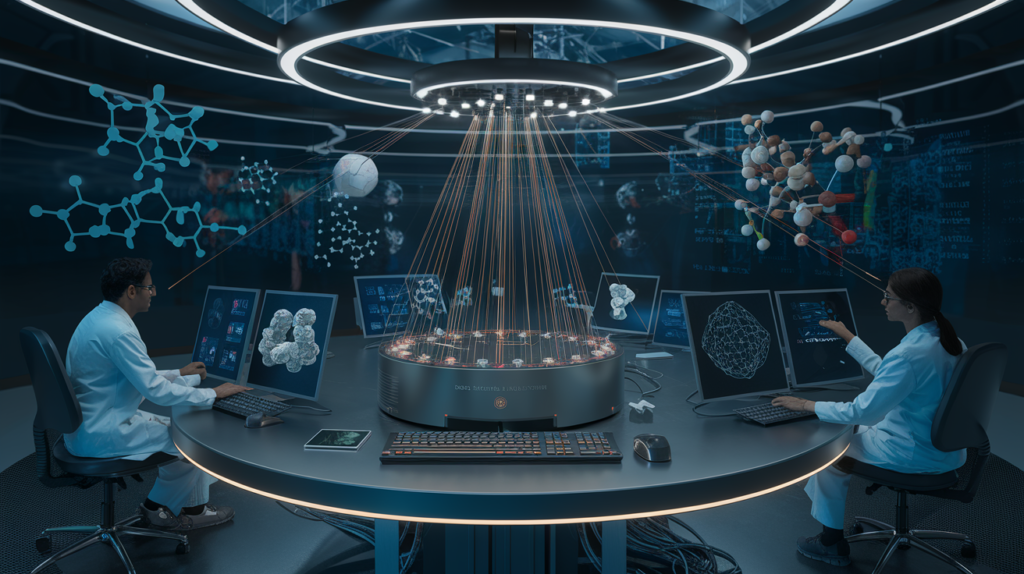
3. 5G and the Hyperconnected World
The rollout of 5G technology is already underway, but in the coming years, it will become the backbone of the hyperconnected world. With faster speeds, lower latency, and greater connectivity, 5G will power everything from smart cities to autonomous vehicles.
- Smart Cities: For example, 5G will enable cities to become more efficient and sustainable. Traffic management systems, energy grids, and waste management processes will all be optimized through real-time data collection and AI-powered analytics.
- Autonomous Vehicles: Moreover, self-driving cars will become more common as 5G enables them to communicate with each other and their surroundings in real time. This will lead to safer roads, reduced congestion, and more sustainable transportation options.
- The Internet of Things (IoT): As a result, 5G will connect billions of devices, from household appliances to industrial machinery, creating a seamless network of communication. Ultimately, this will lead to smarter homes, factories, and cities where devices and systems operate in perfect harmony.
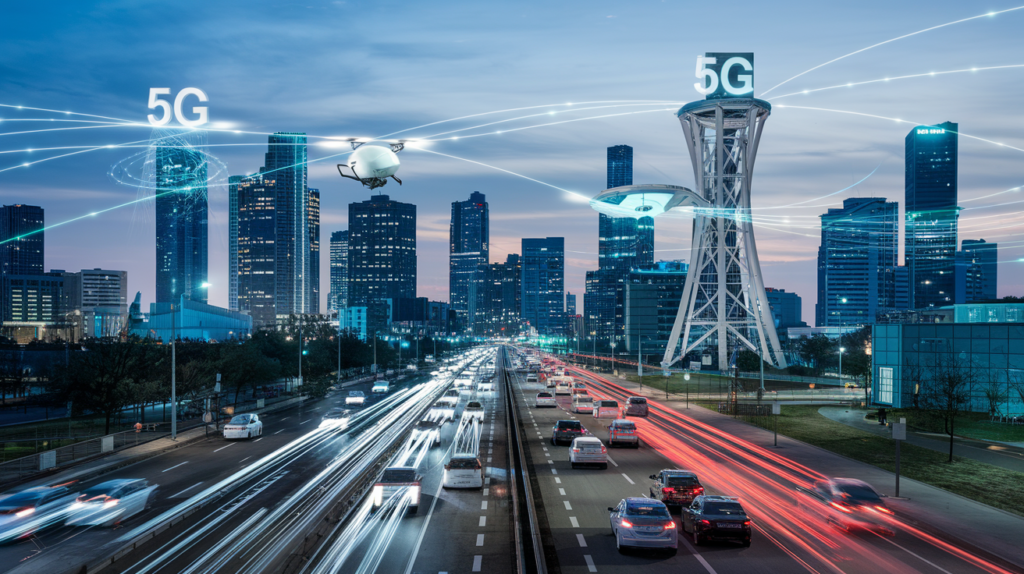
4. Blockchain Beyond Cryptocurrency
Blockchain technology is most commonly associated with cryptocurrencies like Bitcoin, but its potential goes far beyond digital currencies. Over the next decade, blockchain will become a transformative force in various industries.
- Decentralized Finance (DeFi): Blockchain will revolutionize the financial sector by providing decentralized financial services that don’t rely on traditional intermediaries like banks. As a result, this will enable faster, cheaper, and more secure transactions.
- Supply Chain Transparency: Moreover, blockchain will enhance transparency and traceability in supply chains. Consumers will be able to verify the origin of products, ensuring ethical sourcing and reducing fraud.
- Digital Identity Management: In addition, blockchain will offer more secure and decentralized methods of managing digital identities, helping to reduce identity theft and streamline verification processes.
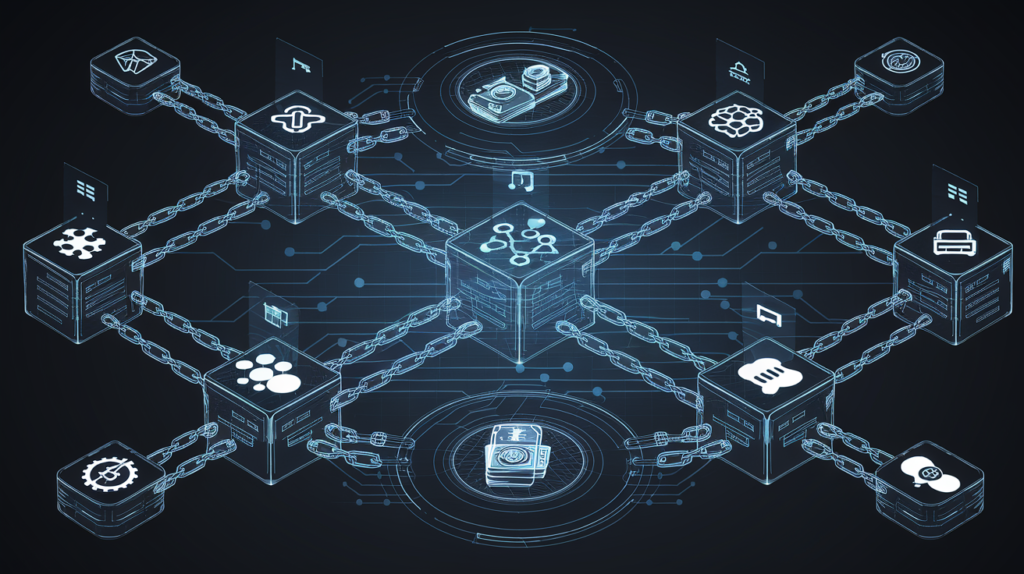
5. Augmented and Virtual Reality (AR/VR) Integration
Augmented Reality (AR) and Virtual Reality (VR) will transition from niche technologies to mainstream applications over the next decade. These immersive technologies will transform how we experience entertainment, work, and education.
- VR in Entertainment and Gaming: The gaming industry will continue to push the boundaries of VR, offering players more immersive experiences. Beyond gaming, VR will be used for virtual concerts, sports events, and interactive movies.
- AR in Retail and Shopping: Similarly, augmented reality will reshape the retail experience, allowing customers to virtually try on clothes, preview furniture in their homes, or even visualize how makeup looks before purchasing.
- Remote Work and Collaboration: In addition, as remote work becomes more common, AR and VR will enhance collaboration by creating virtual meeting spaces where colleagues can interact as if they were in the same room.

6. Sustainable Technologies and Green Innovation
As the world grapples with climate change, the demand for sustainable technologies will soar. Green innovation will become a priority, with new technologies helping us reduce carbon emissions, conserve energy, and protect the environment.
- Renewable Energy: Solar, wind, and other renewable energy sources will become more efficient and widespread. In particular, advances in energy storage technology will allow us to store renewable energy for longer periods, reducing our reliance on fossil fuels.
- Electric Vehicles: Furthermore, the electric vehicle (EV) market will expand as governments and automakers invest in greener transportation solutions. As a result, charging infrastructure will improve, and EVs will become more affordable, accelerating the shift away from gas-powered cars.
- Smart Agriculture: Lastly, precision farming techniques will use AI and IoT to optimize crop yields while reducing water and pesticide use. This will lead to more sustainable food production and help address global food security challenges.
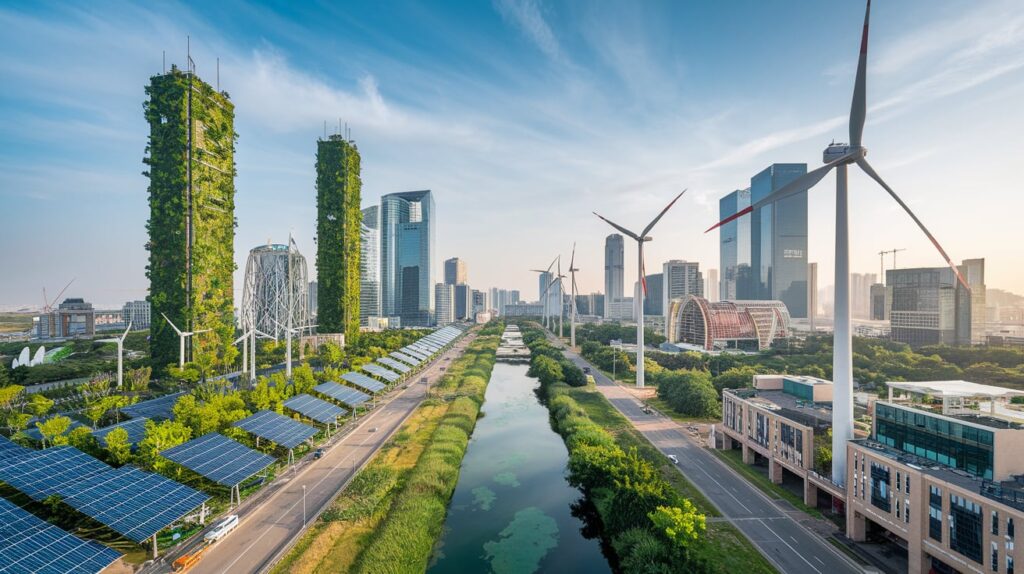
7. Biotechnology and Human Augmentation
Biotechnology will unlock new possibilities for enhancing human capabilities, ranging from health improvements to physical and cognitive augmentations. In the next decade, we will see the rise of bioengineering and biotech advancements that push the boundaries of human potential.
- Gene Editing: Technologies like CRISPR will allow us to edit genes, potentially curing genetic disorders and diseases. Consequently, this could lead to a future where genetic modifications become a standard part of medical treatment.
- Wearable Technology: Wearables will go beyond fitness trackers and smartwatches. Moreover, future wearables could monitor vital signs in real time, detect illnesses before symptoms appear, and even enhance physical abilities.
- Brain-Computer Interfaces: Furthermore, brain-computer interfaces (BCIs) will enable direct communication between the brain and machines. As a result, this could lead to breakthroughs in treating neurological disorders, improving prosthetics, and even enhancing cognitive function.
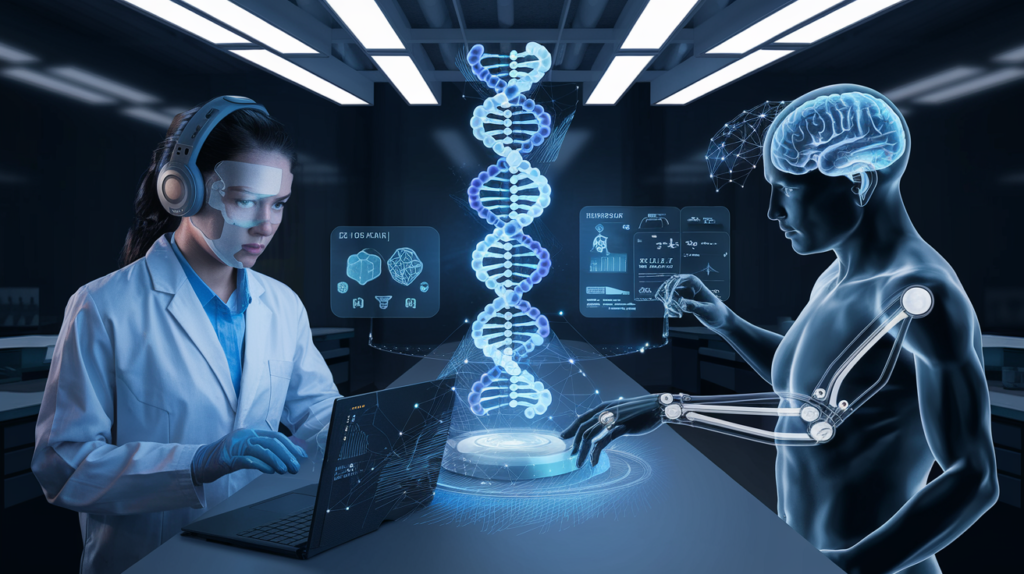
Final Thoughts
To sum up, the future of technology is filled with possibilities that will reshape our world in unimaginable ways. From the rise of AI to the promise of quantum computing and sustainable innovation, the next decade will bring breakthroughs that revolutionize industries, improve lives, and tackle global challenges. By staying informed and adaptable, individuals and businesses can thrive in this dynamic and rapidly evolving landscape.

